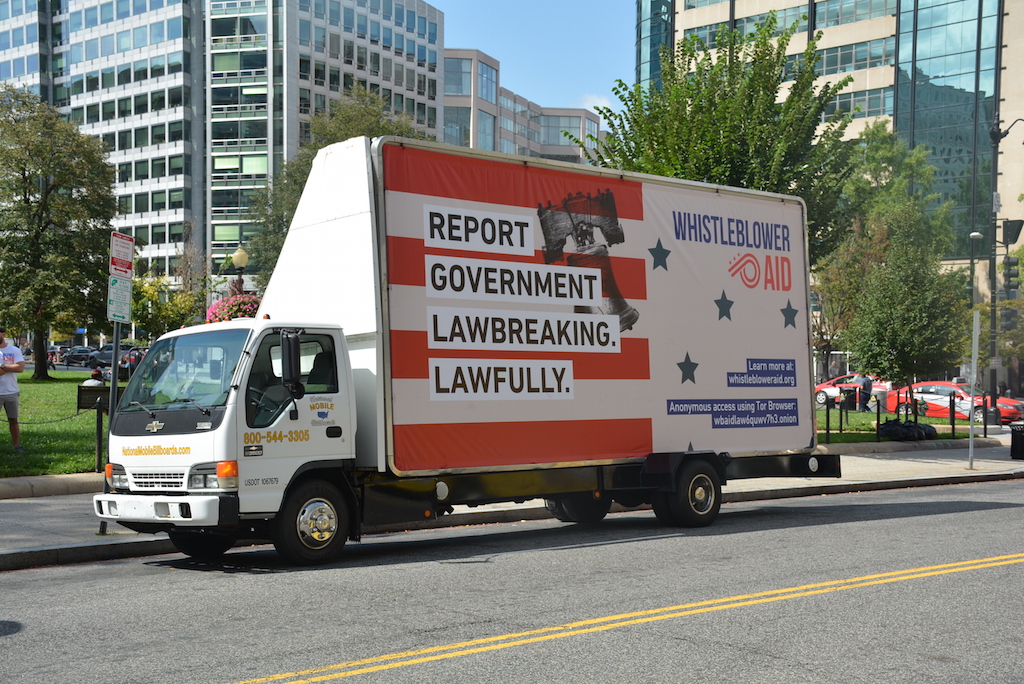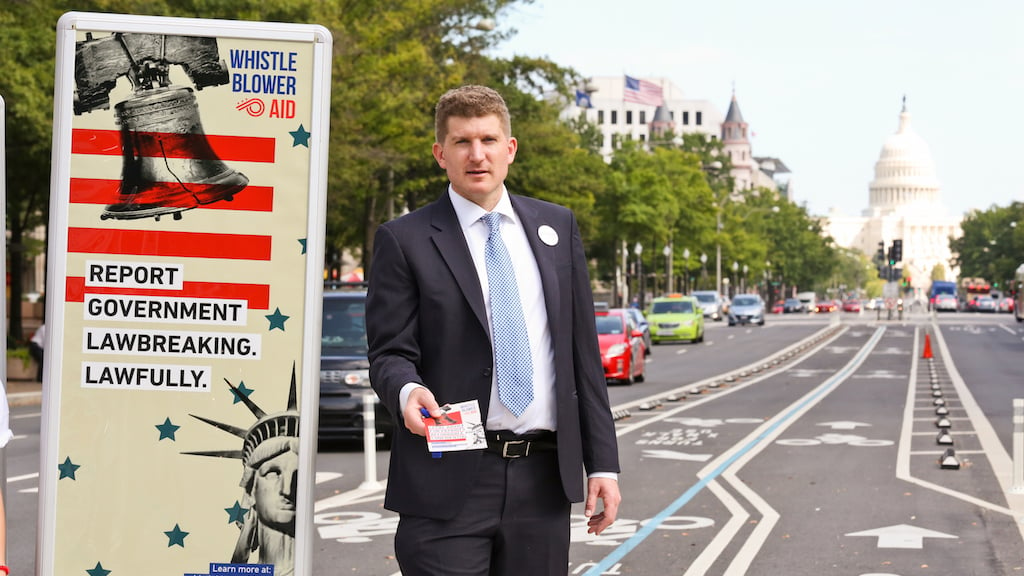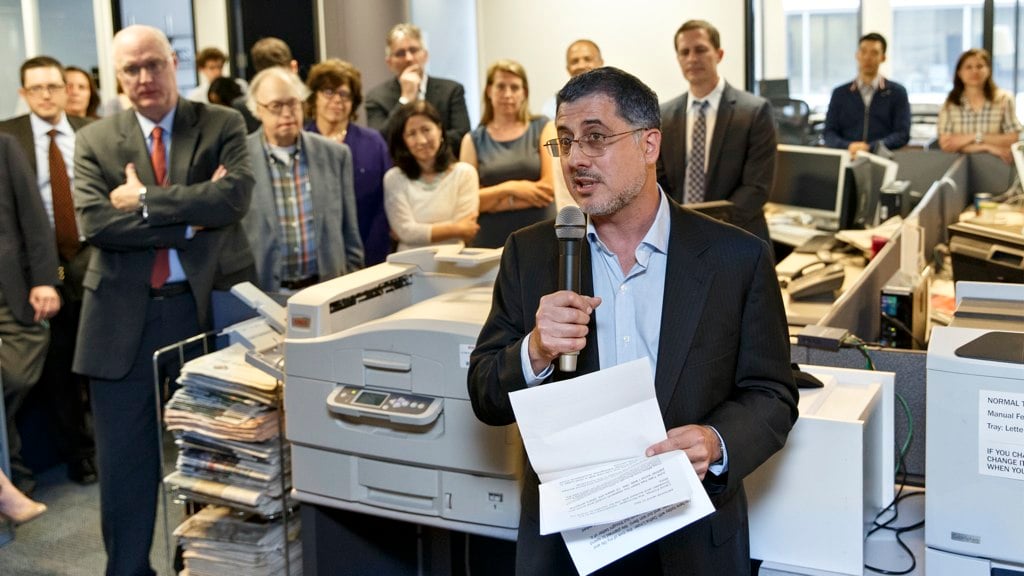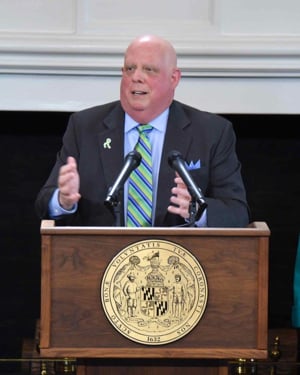About two and a half years into John Tye‘s time working on internet policy for the State Department, former National Security Agency contractor Edward Snowden came forward with arguably the most influential leak of classified information in US history. He published several NSA documents exposing the agency’s global surveillance programs, setting off a nationwide review of how the government balances privacy and security.
Tye was one of the officials tasked with drafting the response to Snowden’s document dump, and because of that, he received a comprehensive briefing. It was during that session that he first learned of the broad scope of Executive Order 12333, the Reagan-era document expanding US intelligence agencies’ powers.
Tye was disturbed that most of the coverage about Snowden cited the post-9/11 Patriot Act, but didn’t mention the executive order, so he blew the whistle on it. Unlike Snowden, though, he made sure to do so in a way that avoided leaking any classified information.
“But I was lucky,” he says. “I’m a lawyer, so I knew how to make a legal argument; I had a network of people at the ACLU and other organizations who I could talk to about this; and I had the $13,000 I needed to pay for legal representation.”
Now Tye’s hoping other government officials follow his example, which is why he and his attorney, Mark Zaid, founded Whistleblower Aid in September. The month-old nonprofit aims to provide free legal assistance to government officials hoping to expose wrongdoing—without leaking classified information or otherwise sacrificing integrity.

I spoke with Tye last week about his inspiration for Whistleblower Aid and what he hopes the organization can accomplish.
How did you initially come up with the idea for Whistleblower Aid?
Good governance is one of the most important things for this country. And after blowing the whistle myself, I realized how difficult it can be to navigate the moral and legal calculus of calling out the government while you’re also working for it. Like many people, I also have concerns about the current administration’s respect for rule of law—so I reached out to Mark earlier this year with the idea for Whistleblower Aid, and he was like, “Great, let’s do it.”
What are some of the ways government officials get themselves in trouble by blowing the whistle?
Of course, if you leak classified documents while blowing the whistle, that will get you in jail—but even non-classified information can get you in trouble. For instance, if you remove a piece of paper from a file, you could be charged with theft of government property. And even if there’s no legal prosecution, there’s all sorts of workplace retaliation, like employment-law issues where your boss revokes your security clearance or pushes you to a different office or puts you on administrative leave.
How is Whistleblower Aid finding clients and communicating with them in a way that won’t expose them?
We set up something called SecureDrop on the Tor network. That’s the only way to reach us, and that’s very deliberate because it’s the most secure solution out there. People can message us about government issues, and we won’t know their computer’s IP address, their name, or anything about them. Basically, we’re not collecting any data on people before we’ve decided to work for them because the Tor network is an encrypted, anonymous part of the Internet.
What kinds of clients do you expect to come your way?
We’re open to every issue that the government works on—so financial regulation, environmental issues, coal-mining, you name it. That said, we have a special focus on intelligence and national security issues because Mark and I have a background in those things. Also, they’re the most difficult areas in which to maintain democratic oversight because so much of it is secret. When it comes to intelligence operations, voters don’t know anything about them, Congress has a very limited role, and the courts have zero role. So, it’s 99 percent the President and the agencies—which have an interest in seeing these secret data-gathering operations continued.
How does the process work once a potential client reaches out to you?
We set up an in-person meeting. Currently, we’re asking foundations for money to build a secure facility with restricted access, special locks, and multiple-factor authentication, so that we can reassure clients they’ll be protected. We also have tamper-evident lock boxes, which we’ve covered in tape or caulk and then painted with glitter nail polish, so that if they’re opened, we’ll be able to tell. We even took photos of the glitter pattern, so if someone scraped it off and repainted it, we’d know it was tampered with. This is overkill for most cases, but we built this system for the one or two cases that really need it. Those are the people who were likely paid by a foreign intelligence service in the past and who have evidence relevant to the [Robert] Mueller investigation.
Why did you decide to make Whistleblower Aid a nonprofit? These services are pretty valuable, so I’d imagine people would pay for them, too, right?
What we’re doing is in the public interest, so I think foundations should be supporting it. Also, it’s not just legal services that we’re offering. If the info related to government-wrongdoing is in a classified document, we can help you challenge the classification. If you’re going to give interviews or address Congress, we can help you meet with a PR company so that you can craft your story. If coming forward gets you fired, we’ll help pay your rent or mortgage for six months until you get a new job, or we’ll help you find a new job through networking. We can even help you meet with a therapist because the fact is, it’s very stressful—you’re worried about losing your job, you’re worried about your family, all the rest of it. We’re trying to be the full-service operation that will grow the pool of whistleblowers.
This interview has been edited and condensed for clarity.



















